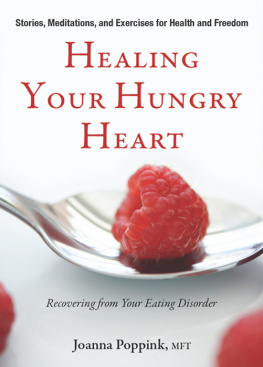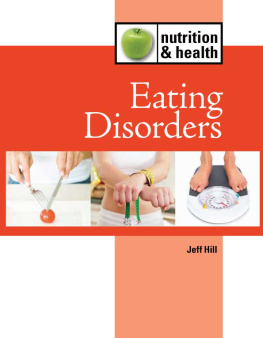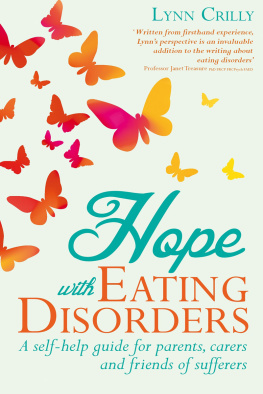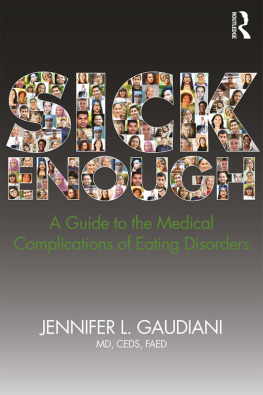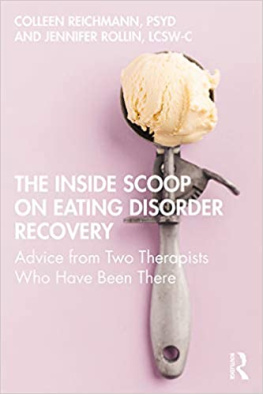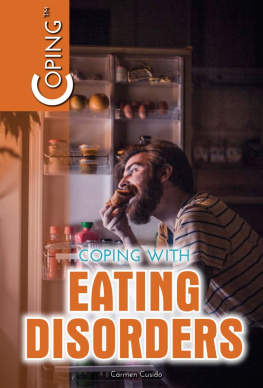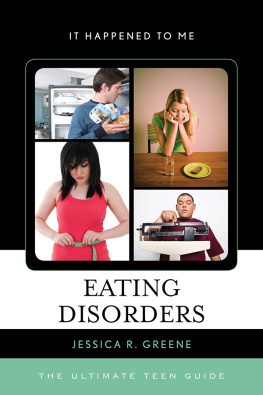In praise of HDRM: the Homeodynamic Recovery Method
I just wanted to let you know that we had a mini group session with the dietician today. She was speaking about how we work with a meal plan and then she went on to specifically recommend the ED Institute website and the HDRM. I almost jumped out of my seat!! I was so excited to hear her endorse the ED Institute to the group. She told everyone how the meal plan is just a minimum, how people on HDRM had eaten to hunger cues and done so well on it, she talked about set point theory - she was so much behind everything on the Eating Disorder Institute website.
Zoe
I just started a day program for anorexia treatment/weight restoration this week. Your blog post about what to expect during the phases of recovery answered all of my questions, concerns, misapprehensions and silly-but-insomnia-causing irrational fears better than anyone at this clinic so far - and it's a freaking well-run clinic, haha. Thank you. Thank you so so much for the detail, clinical and psychological insight and fact, and COMPASSION that you put into this website, and that post.
Bridget
I just want to say thank you so much for this website. It has been a life saver, literally, for me and my daughter. She was dismissed by the doctor as not quite skinny enough to qualify for help, and I was dismissed as too controlling. I have felt desperate, but the information and support that you provide on this site has been so so good, and helpful. All the facts about what to expect in recovery, what is normal, and the barriers she has to get through have genuinely been her constant companion and guide. Thank you.
Rachel
Doctors said without drastic changes, I would have 2 to 3 weeks left to live, as all my organs were beginning to shut down after almost 6 years of Anorexia. I was so sick that I thought that maybe it would be the best for me and anybody else if I could just disappear. Doctors gave me until the next day to think about everything and tell them how and if I wanted to continue treatment. The night after that appointment, I remembered that somebody once mentioned something about the HDRM guidelines and without really expecting a lot, I took a look at your blog. In this night, I read about three quarters of your blog posts, watched all your videos, read recovery stories from people in remission and did a ton of research on my own. And I cannot really say that it was an Aha-moment. I dont know exactly how it happened, but when I went to bed in the early morning, I had new hope, new determination and new motivation. Whats strange is that the guidelines are actually not different from what my care team was telling me: Eat, rest and cognitive behavioral therapy. But something about the way you explain things, how you write and talk just broke down all the walls I had built around me. After talking everything through very carefully with my care team the next day, I started my own personal HDRM-journey.
Julia
I just came across your incredible site and I HAD TO EXPRESS MY APPRECIATION. I am a licensed clinical psychologist specializing in the treatment of ED and am beyond grateful for the tireless work and effort you have put into creating the ED Institute. I look forward to sharing this resource with patients and colleagues. Thank you for creating such an influential resource. Words can't express my appreciation and gratitude.
Janelle
The Eating Disorder Institute
www.edinstitute.org
The mission of The Eating Disorder Institute is to help patients become "the expert in the room" .
Patient advocacy is a practice wherein the focus is on empowering patients. Health care provision these days renders both patient and practitioner progressively more responsible for having the health care delivery system run smoothly rather than realize the best outcomes for the patient.
In an excessively fattist and healthist society (wherein we discriminate against and stigmatize those with fatness and/or illness), the opportunity to receive adequate care and support when one has an active eating disorder is poor. Not only are there inadequate services to begin with, but the majority with the condition is excluded from adequate care exclusively on the unscientific premise that body mass reflects health status.
The Eating Disorder Institute provides scientific data for the purpose of having it applied in real-life circumstances, with presumed explicit support and advice from qualified health care providers, either to mitigate quality and length of life impacts and/or to navigate this chronic condition into a state of full remission.
Other books by Gwyneth Olwyn
Journal (vols 1..6 in 6 different colours)
ISBN 978-1475001730
A personal journal to support those recovering from eating disorders. The journal contains both a food log and diary-style pages as well as excerpts related to recovery from the edinstitute.org website.
RECOVER
FROM
EATING DISORDERS
RECOVER FROM EATING DISORDERS
The Homeodynamic Recovery Method
GWYNETH OLWYN
EATING DISORDER INSTITUTE
Akureyri Publishing
Vancouver
Printed in USA
RECOVER FROM EATING DISORDERS. Copyright 2017 by Gwyneth Olwyn.
All rights reserved.
For more information visit www.edinstitute.org
Nothing provided within this handbook constitutes medical advice. Please seek the advice of your medical practitioner to support your recovery efforts.
Olwyn, Gwyneth.
Recover from eating disorders: the homeodynamic recovery method / Gwyneth Olwyn. 1st ed.
p. cm.
Includes bibliographical references and index.
ISBN-13: 978-1500828257
ISBN: 1500828254
Akureyri Publishing ISBN 978-1-500-82825-7
First published in Canada by Akureyri Publishing
First Edition: July 2017
For all those who live with eating disorders.
Acceptance doesnt mean resignation. It means understanding that something is what it is and theres got to be a way through it.
Michael J. Fox
Acknowledgments
It was my intention to publish this guide many years ago. And while I fully expect that in a few more years I will look back on this guide and want to further edit and update it, you eventually have to put a bow on things and hope that it is sufficiently comprehensive and useful to your readership.
All possible errors, oversights and mistakes in this guide are mine and mine alone. I was fortunate enough to have two professional book and research editors review the drafts of this guide and offer me invaluable feedback. Thank you Kerrie Baldwin and Ruth Leach for your ability to call out when I lost my train of thought and for giving me some absolutely brilliant reordering of paragraphs that made the hopelessly unclear suddenly make absolute sense. That you gifted me with your professional editing of the guide is a debt I cannot repay.
To Andrea LaMarre, Tetyana Pekar and Elizabeth Watson my thanks for your razor-sharp brains, wit and for inherently refusing to settle.
Lynh, Nicola, Heidi, Pauline and Heather who have shared their personal experiences of recovery, you are all so very dear to my heart. The challenges and successes that you have relayed to me over the years have become the soul of the entire Eating Disorder Institute. Without your input, I would truly have no understanding of eating disorders because all the peer-reviewed published material in the world is useless if it cannot be translated into any kind of lived outcome.
There are too many ED Institute community members to name, but each one of you has had a hand in making what is the best of this guide a reality.
To the three Rachels, you know who you are, it is humbling for me on a daily basis that you taught me more than I could ever possibly offer to each of you. Rare is the day that you are all not on my mind.
Next page

